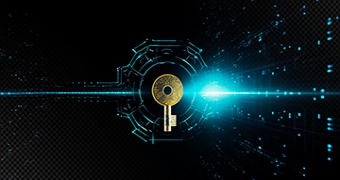We are living in a world where artificial intelligence (AI) is transforming eve....
Achieving Digital Trust Through ISO/IEC 27001

In today’s world, where headlines of data breaches and privacy concerns are frequent, building digital trust has never been more critical for businesses.
What Is Digital Trust?
Digital trust refers to the level of confidence in the security, reliability, and integrity of digital interactions, systems, and data. It is not just about securing information but also about ensuring that users believe in the organization’s commitment to maintaining that security.
To foster this trust, businesses must demonstrate that they have comprehensive measures to protect sensitive information. This is where ISO/IEC 27001 comes into play.
ISO/IEC 27001: An Overview
ISO/IEC 27001 is an internationally recognized standard that outlines the requirements for establishing, implementing, maintaining, and continuously improving an information security management system (ISMS). It provides a systematic approach to managing sensitive company information, ensuring it remains secure.
Key aspects of the standard include:
- Risk management – Proactively assessing vulnerabilities and threats.
- Threat identification – Anticipating and addressing emerging security issues.
- Security controls – Implementing and maintaining robust defenses.
ISO/IEC 27001 is flexible and applicable across various sectors, from technology firms to financial services, healthcare, and beyond.
How ISO/IEC 27001 Enhances Digital Trust
- Structured Risk Management: ISO/IEC 27001 encourages a proactive approach to risk management. By assessing potential vulnerabilities and threats regularly, businesses can anticipate and mitigate risks before they become significant issues. This structured approach ensures that companies stay ahead of security challenges, providing reassurance to stakeholders that their data is in safe hands.
- Legal and Regulatory Compliance: With ISO/IEC 27001 helps organizations meet various legal and regulatory requirements related to data protection and privacy, such as the GDPR (General Data Protection Regulation) or CCPA. By adhering to these regulations, businesses demonstrate their commitment to maintaining high security standards, further building trust with clients and partners.
- Continuous Improvement: One of the key components of ISO/IEC 27001 is the continuous improvement cycle. Once a company achieves certification, it must regularly review, monitor, and improve its ISMS. This commitment to ongoing enhancement of security practices assures stakeholders that the organization remains vigilant and responsive to emerging threats, solidifying their digital trust.
- Transparency and Accountability: ISO/IEC 27001 promotes transparency in how data is handled, stored, and protected. The standard’s documentation requirements ensure that organizations can clearly show what controls are in place and how risks are managed. This level of transparency is essential for building and maintaining trust, particularly when communicating security policies to customers and partners.
- Strengthened Supply Chain Security: Many businesses today rely on third-party vendors for critical operations. ISO/IEC 27001 helps ensure that an organization’s entire supply chain adheres to rigorous security standards. This not only protects the business but also ensures the safety of customer data throughout all touchpoints, reinforcing trust in the organization’s overall security posture.
Mastering ISO/IEC 27001: A 10-Step Guide to Seamless Implementation
Benefits of ISO/IEC 27001 Certification
Achieving ISO/IEC 27001 certification sends a strong message to stakeholders about the organization’s dedication to security and data protection. Some of the key benefits include:
- Enhanced Knowledge and Skills - ISO/IEC 27001 certification equips professionals with an in-depth understanding of security principles, risk management, and compliance, enabling them to tackle various challenges more effectively.
- Career Advancement - Obtaining ISO/IEC 27001 certification significantly boosts a professional’s marketability, setting them apart as experts in digital security. It opens doors to leadership roles, higher-level positions, and exciting new career opportunities.
- Higher Earning Potential - Certified professionals often earn higher salaries in the digital security field. The specialized knowledge gained through certification is highly valued, and employers recognize the added value, making them more willing to invest in these experts.
- Global Recognition - ISO/IEC 27001 certification is recognized worldwide, providing professionals with opportunities to work on diverse projects with global organizations. This international exposure enriches their career by offering experiences in different cultures, business practices, and cybersecurity challenges.
- Demonstrated Commitment to Security - ISO/IEC 27001 certification highlights a professional’s dedication to maintaining the highest standards of data protection and confidentiality, which is crucial for organizations looking to strengthen their security measures and safeguard sensitive information.
These benefits contribute not only to stronger security but also to fostering a culture of trust and reliability.
ISO/IEC 27001 Certification Levels: Lead Auditor vs. Lead Implementer
Building a Trustworthy Digital Future
In an environment where cyber threats are constantly evolving, businesses must prioritize security to safeguard the sensitive data of their customers and partners. ISO/IEC 27001 provides a proven framework to build, enhance, and maintain digital trust. By implementing this standard, organizations not only demonstrate their commitment to data security but also establish a culture of continuous improvement that reassures stakeholders at every level.
As digital trust becomes an increasingly critical asset, adopting robust standards like ISO/IEC 27001 is no longer optional—it is essential for organizations that want to thrive in today’s digital economy.
How Can PECB Help?
To support professionals in enhancing their information security practices, PECB provides comprehensive training courses and certification programs for roles such as:
- ISO/IEC 27001 Foundation
- ISO/IEC 27001 Lead Auditor
- ISO/IEC 27001 Lead Implementer
- ISO/IEC 27001 Transition
PECB offers a wide range of training courses, certification, and resources designed to help professionals and organizations strengthen their information security practices.
About the Author
Teuta Hyseni is the Senior Web Content Specialist at PECB. She is responsible for updating and managing website content. If you have any questions, please do not hesitate to contact her at: support@pecb.com.


